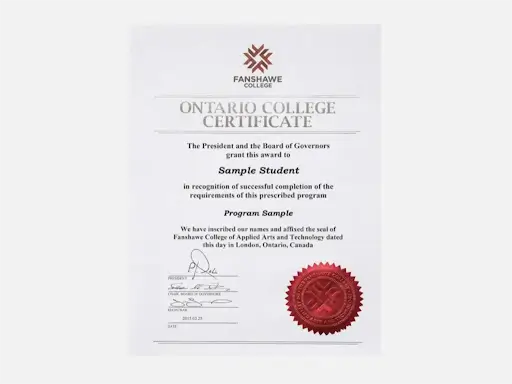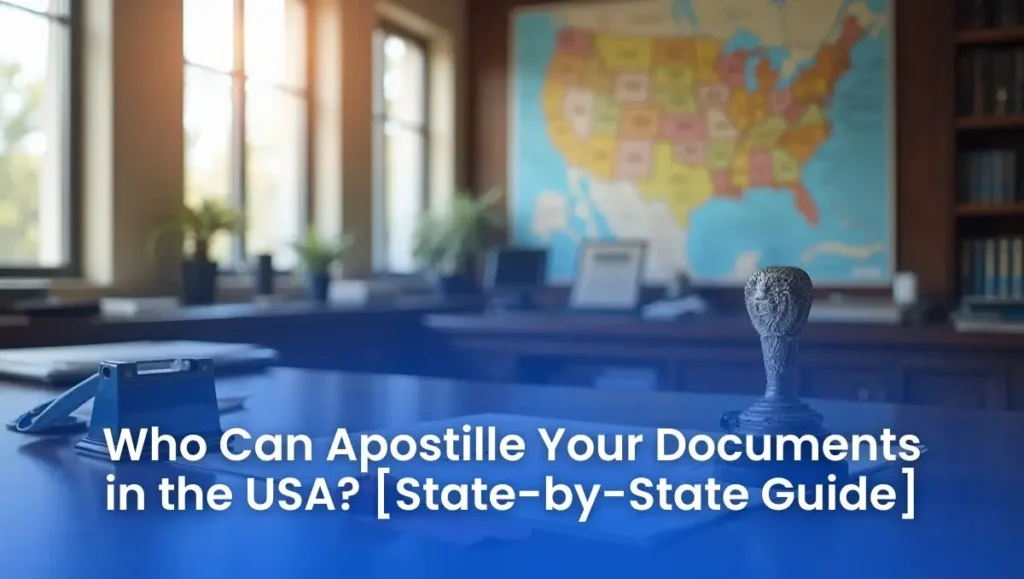The apostille USA process often feels like solving a bureaucratic puzzle for people who need to use their documents internationally. An apostille adds authentication to official documents that makes them legally valid in foreign countries. The process to get documents recognized internationally required multiple government signatures at the time before the Hague Apostille Convention of 1961.
The international treaty has substantially improved document authentication between member countries. More than 120 states have joined the Convention, which makes it easier to use documents abroad. The process varies by document type and location, so people often find it challenging to determine who can apostille their documents in the United States.
This detailed piece explains who has the power to apostille your documents in the USA. You will learn whether you need state or federal authentication through a state-by-state breakdown of the apostille process. The guide covers everything from birth certificates to diplomas and business documents. For expert assistance, visit Oregon Apostille Hub.
What is an Apostille and Why Does it Matter

Your document’s international passport comes in the form of an apostille. The Hague Convention of 1961 created this standardized certificate. This simplified the complex process that documents needed to be legally recognized abroad.
Definition of apostille
An apostille works as a specialized certificate that validates public documents for international use. The certificate verifies three significant elements: the signature’s authenticity, the signer’s capacity, and the seal or stamp’s identity where applicable. French origins gave us the term “apostille,” which means “a marginal note.” This refers to the certification that gets attached to or stamped on the original document.
Purpose and legal effect
Apostilles make the legalization process simpler for public documents used internationally. Documents needed multiple certifications through diplomatic channels before this system. Public documents issued in one country become recognized as valid in another through an apostille.
Any country participating in the Hague Convention—now more than 120 worldwide—legally accepts documents with an apostille. Keep in mind that an apostille only confirms the document’s authenticity, not what’s inside it.
Apostille vs notarization
People often mix up apostilles with notarization. These two serve different purposes:
- Notarization: Notaries act as impartial witnesses during document signings. Their signature and stamp make documents legally binding within the country.
- Apostille: This extra layer of authentication makes a document (usually already notarized) valid internationally in Hague Convention countries.
Documents usually need notarization before getting an apostille—making it a two-step process. Your university diploma needs notarization from the registrar’s office first if you’re moving abroad. After that, you’ll need an apostille from your state authority.
Notaries confirm legal validity of signatures in the United States. Your document will cross borders smoothly with an apostille. You won’t need more authentication in the countries you’re heading to.
Who Can Apostille a Document in the USA
The legal power to issue apostilles in the United States belongs exclusively to specific government authorities. You need to know the right authority that can authenticate your documents. This knowledge is vital for getting your apostille successfully.
State-level authorities: Secretaries of State
The Secretary of State’s office serves as the main authority for documents that originate within a specific state. To cite an instance, Florida’s Secretary of State remains the only authority that can issue apostille certifications through their Division of Corporations in Florida.
Each state maintains its own office to authenticate documents issued within its jurisdiction. The Hague officially recognizes these offices as “Competent Authorities“. You can’t take documents to another state’s authentication office because states can only authenticate documents issued within their borders.
Federal-level authorities: U.S. Department of State
The U.S. Department of State authenticates documents issued by federal agencies. This department handles two types of certification:
- Apostille certificates – used in countries that participate in the 1961 Hague Convention
- Authentication certificates – used in countries that don’t participate in the Hague Convention
The U.S. Department of State’s Office of Consular Affairs, Passport Services, Vital Records Section handles apostilles for Consular Reports of Birth, Death, and Marriage of U.S. citizens.
When to use state vs federal apostille
Your document’s origin determines which authority should issue your apostille:
- State apostille applies to documents from state-level offices, including:
- Birth certificates, marriage licenses, divorce decrees
- State court documents
- Notarized documents
- Educational diplomas and transcripts from state institutions
- Federal apostille applies to:
- Documents issued by federal agencies
- Federal background checks
- Documents bearing the seal of a U.S. embassy or consulate
The difference is clear—your document’s place of issue determines its apostille authority. This system will give a proper verification of each document’s authenticity through the right government channel.
Types of Documents and Where to Apostille Them
The type of document you have determines where you can get it apostilled. Different authorities across the USA handle specific document categories.
State-issued documents (birth, marriage, diplomas)
The Secretary of State’s office must apostille state-issued documents in the state of their origin. These documents include:
Birth and death certificates need certification first from the state’s Department of Health or county clerk’s office. You can get marriage certificates from the county that issued the marriage license or the state’s vital records office.
Academic credentials like diplomas and transcripts need careful handling. You’ll need an official copy from your school’s registrar with a notary public’s executed affidavit. Some states have specific requirements. Minnesota, for example, requires notarized transcripts and diplomas instead of accepting school official signatures.
Federally-issued documents (FBI checks, IRS forms)
The U.S. Department of State must handle apostille certification for documents signed by federal officials. These documents include:
FBI background checks can’t get apostilles from state offices. The U.S. Department of State must also apostille immigration certifications, pharmaceutical export certificates, and U.S. federal court documents.
Private documents (POA, affidavits, business docs)
Private documents split into two categories:
- Personal documents: Power of Attorney, affidavits, consents
- Business documents: Articles of Incorporation, commercial invoices, deeds
A notary in the state of origin must first certify these documents. The same state’s Secretary of State office then provides the apostille. An attorney in the destination country should draft Powers of Attorney for international use.
Special cases: foreign language and translations
Documents in foreign languages can receive apostilles if the notarization appears in English. Countries might require a certified translation when you present a document. The apostille itself might need translation in some cases.
Translations work in two ways: you can translate the document first, then get it notarized and apostilled, or get the apostille for the original document before translating both the document and apostille.
State-by-State Apostille Guide
Each state has its own still procedures with different fees, processing times, and requirements. Let’s look at what you should know about some major states when you need an apostille.
California: Apostille birth certificate California
Getting a California birth certificate apostille needs specific steps. The California Secretary of State asks for $20 per apostille plus a $6 special handling fee to authenticate each public official’s signature. You must get your birth certificate certified by a county clerk, county recorder, or the State Registrar before submission. The state gives you options to mail documents or visit offices in Sacramento and Los Angeles, and walk-ins can get same-day service.
New York: County clerk vs state process
New York uses multiple steps. Documents need county clerk certification from their originating office before going to the NY Department of State. Birth certificates need a certified copy with a Letter of Exemplification from the Department of Health. You’ll pay a $3 fee for county clerk verification and $10 for state authentication per document. Most New York documents that need apostille follow this county-then-state process.
Texas: Walk-in vs mail-in options
Texas limits walk-in customers to 10 documents per person with same-day processing, but wait times can be long. A bulk request drop-box option takes 24-48 hours. Mail-in requests take much longer—up to 25 business days. The state charges $15 per document whatever method you choose.
Florida: Online tracking and fees
Florida asks $10 per document for standard apostilles and $20 for court-certified documents. The state’s Secretary of State handles apostille services through their Division of Corporations. They also let you order vital records that need apostilles through VitalChek’s two-step online process.
Illinois: Common delays and tips
Illinois keeps apostille costs low at $2 per document. Mail requests usually take 7-14 business days, but you can walk in at Springfield and Chicago offices. Wrong notarization, name mismatches, and incomplete forms cause most delays. Make sure an Illinois notary public properly notarizes all your documents to avoid rejection.
Washington D.C.: Federal document apostille
The Office of Notary Commissions and Authentications (ONCA) processes D.C. apostilles for $15 per document. You can get in-person authentication on weekdays from 9 AM-1 PM, and it takes about 20 minutes. Mail-in requests take 2-3 business days. D.C. handles Apostilles for Hague Convention countries differently than Foreign Documents for non-member countries.
Guiding You Through the Apostille Process
Getting an apostille might look complicated at first, but knowing the right steps makes everything easier. Your documents can cross borders smoothly with apostilles that work like international passports, proving them valid without complex diplomatic steps.
The authority that can issue your apostille depends on where your document came from. You’ll need to go to your state’s Secretary of State office for state documents, while federal papers go through the U.S. Department of State. Most business and personal documents need a notary’s stamp before they can get an apostille certification.
Every state has its way of doing things, with different fees and processing times. You can walk in and get same-day service in California for $20 per document plus handling fees. Illinois charges just $2 but takes up to two weeks to process. This means you should plan when getting documents ready for international use.
One rule stays the same everywhere – you must get your apostille from where the document originated. A Texas birth certificate needs a Texas apostille. This applies to documents from all states, no exceptions.
Now you can handle the apostille process with confidence, whether you need it for school, business, or personal reasons abroad. Understanding the right authorities and preparing properly will help your documents move across borders easily, staying legally valid wherever you go. For professional guidance, check out Oregon Apostille Hub.
FAQs
Q1. Who has the authority to issue apostilles in the United States?
In the US, state-position documents are generally apostilled by the Secretary of State’s office in the state where they were issued. For Federal documents, the U.S. Department of State is the designated authority to issue apostilles.
Q2. Can a notary public give an apostille certificate?
No, notaries public can not issue apostilles. While numerous documents bear notarization before entering an apostille, the factual apostille certificate is issued by authorized state or Federal agencies, generally the Secretary of State’s office or the U.S. Department of State.
Q3. Is it possible to authorize someone differently to gain an apostille on my behalf?
Yes, you can authorize a representative to gain an apostille for you. This generally requires an inked authorization letter, a dupe of your valid government ID, and the representative’s valid ID. Still, specific conditions may vary by state.
Q4. What is the difference between state and Federal apostilles?
State apostilles are issued for state-position documents like birth certificates, marriage licenses, and state court documents. Federal apostilles, issued by the U.S. Department of State, are for Federal documents similar to FBI background checks and documents bearing Federal agency seals.
Q5. How long does the apostille process generally take?
The processing time for apostilles varies by state and system. Some countries offer same-day service for walkways, while correspondence in requests can take anywhere from many days to several weeks. For example, California offers same-day service for walkways, while correspondence requests in Texas can take up to 25 business days.

